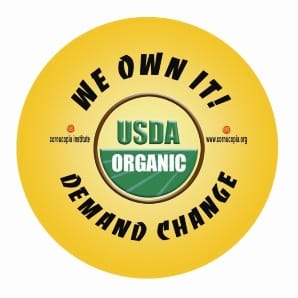 Usually the National Organic Standards Board (NOSB) meets twice a year. Last year, though, the fall meeting was canceled due to the partial government shutdown in October. This year, the spring meeting includes many agenda items from the fall meeting, plus several new items. There are three areas that Cornucopia is particularly concerned about: first, the USDA National Organic Program’s (NOP) decision to change the sunset process; second, the sunsetting of the antibiotic streptomycin, used for apples and pears; and third, the materials petitioned for aquaculture.
Usually the National Organic Standards Board (NOSB) meets twice a year. Last year, though, the fall meeting was canceled due to the partial government shutdown in October. This year, the spring meeting includes many agenda items from the fall meeting, plus several new items. There are three areas that Cornucopia is particularly concerned about: first, the USDA National Organic Program’s (NOP) decision to change the sunset process; second, the sunsetting of the antibiotic streptomycin, used for apples and pears; and third, the materials petitioned for aquaculture.
Sunset — In the Land of the Midnight Sun
On September 16, 2013, the National Organic Program (NOP) published a notice in the Federal Register describing a significant change to the sunset process that requires materials to be re-evaluated or removed from the National List after 5 years. The new sunset policy, a reversal of long-standing accepted procedures, does not subject synthetic and non-organic materials to the congressionally-mandated reassessment. The new policy allows a subcommittee of the Board to renew materials, thereby reducing public input and transparency. This change in policy was undertaken without public comment and without the participation of the NOSB.
Streptomycin — Antibiotics in Organics? We Wish We Were Making This Up
Streptomycin is a broad spectrum antibiotic that is used in human and veterinary medicine to treat a variety of bacterial diseases. It is currently allowed in organic production to control the bacterial disease fire blight in apples and pears; however, its use is set to expire at the end of 2014. The NOSB proposes to extend the expiration date to 2017.
Streptomycin for plant disease control is prohibited in organic production in Europe, Canada, Japan, and many other countries. Orchardists in those countries, and many in the U.S. as well, grow apples without antibiotics. They decrease exposure to disease by using cultural controls, natural materials, approved synthetic materials, and biological controls. Much research has been done recently to predict when outbreaks of disease are likely to occur, and to develop effective control measures.
We encourage the NOSB to uphold the current expiration date of 2014 for streptomycin.
Organic Aquaculture — Like a Fish Out Of Water
Cornucopia is dismayed to see the current NOP focus on the approval of synthetic materials being petitioned for fish farming. The NOSB developed standards for organic aquaculture and released formal recommendations in 2007 and 2008. To date, the NOP has failed to enact those recommendations into law. Therefore, Cornucopia believes that all petitions for the use of aquaculture materials should be tabled until the organic regulations pertaining to aquaculture have been finalized by the NOP. Approving materials before regulations are in effect is putting the cart before the horse. Instead, the NOP has asked the NOSB to review petitioned materials.
The current NOP regulations were written only for land-based (terrestrial) production systems. Regulations for aquatic systems must take into account the significant differences between aquatic and terrestrial ecosystems, particularly with regard to the quantity of nutrients released into the environment. Waste products (feces) released from fish farms will pollute the marine environment and threaten marine life.
Many farmed fish are carnivores, such as salmon, that will be fed a diet of primarily corn and soy in captivity. Attempting to raise carnivorous fish on a vegetarian diet is dubious at best, as it requires the addition of large numbers of synthetic feed additives. This explains, in part, why there are 10 petitioned materials for use in aquaculture to be voted on at this NOSB meeting. Petitions include vitamins, minerals, chlorine, and a preservative (tocopherols).
Cornucopia staff will be attending the Spring NOSB meeting to provide public comments on these and other important issues.

